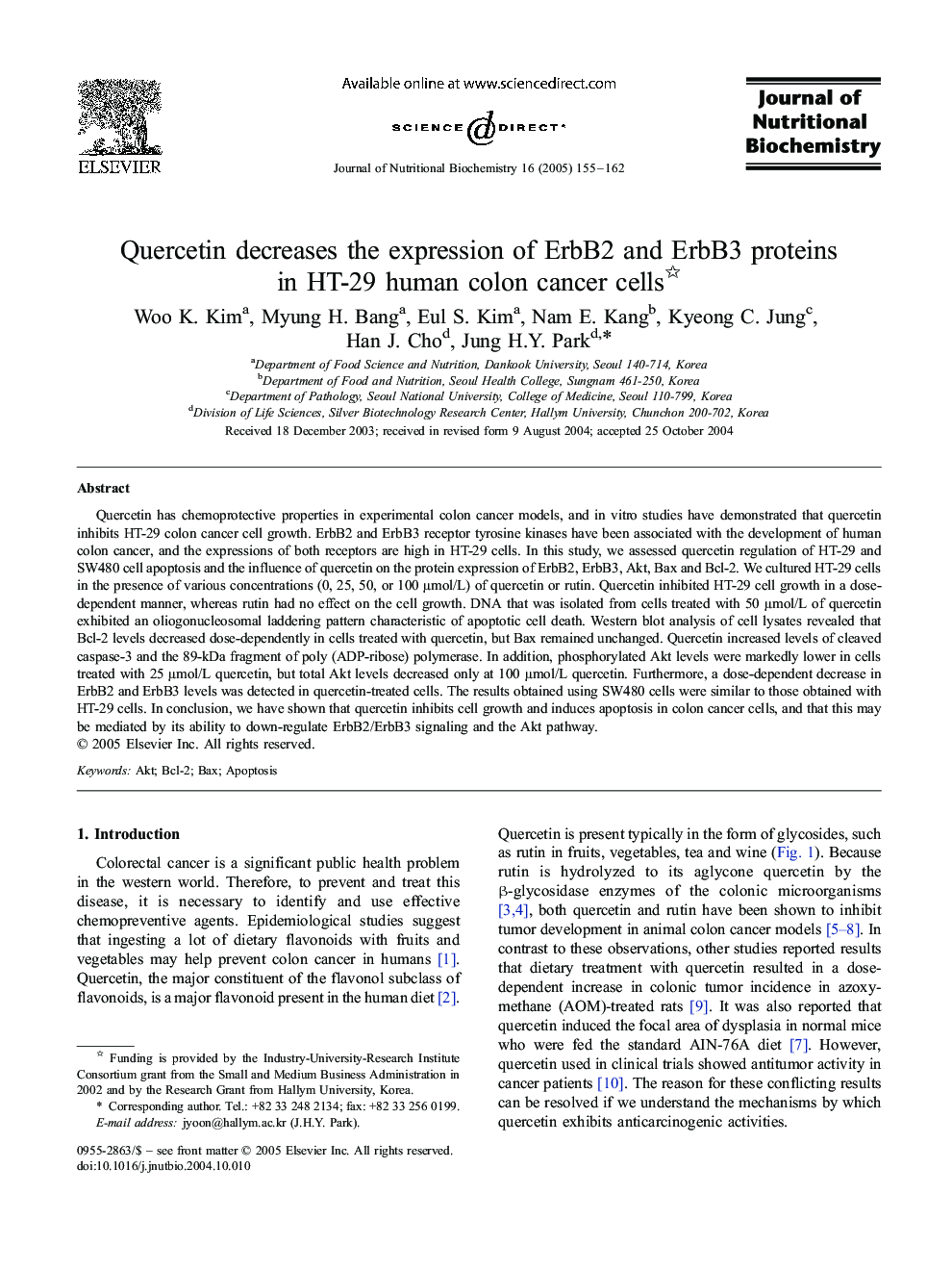| Article ID | Journal | Published Year | Pages | File Type |
|---|---|---|---|---|
| 9891593 | The Journal of Nutritional Biochemistry | 2005 | 8 Pages |
Abstract
Quercetin has chemoprotective properties in experimental colon cancer models, and in vitro studies have demonstrated that quercetin inhibits HT-29 colon cancer cell growth. ErbB2 and ErbB3 receptor tyrosine kinases have been associated with the development of human colon cancer, and the expressions of both receptors are high in HT-29 cells. In this study, we assessed quercetin regulation of HT-29 and SW480 cell apoptosis and the influence of quercetin on the protein expression of ErbB2, ErbB3, Akt, Bax and Bcl-2. We cultured HT-29 cells in the presence of various concentrations (0, 25, 50, or 100 μmol/L) of quercetin or rutin. Quercetin inhibited HT-29 cell growth in a dose-dependent manner, whereas rutin had no effect on the cell growth. DNA that was isolated from cells treated with 50 μmol/L of quercetin exhibited an oliogonucleosomal laddering pattern characteristic of apoptotic cell death. Western blot analysis of cell lysates revealed that Bcl-2 levels decreased dose-dependently in cells treated with quercetin, but Bax remained unchanged. Quercetin increased levels of cleaved caspase-3 and the 89-kDa fragment of poly (ADP-ribose) polymerase. In addition, phosphorylated Akt levels were markedly lower in cells treated with 25 μmol/L quercetin, but total Akt levels decreased only at 100 μmol/L quercetin. Furthermore, a dose-dependent decrease in ErbB2 and ErbB3 levels was detected in quercetin-treated cells. The results obtained using SW480 cells were similar to those obtained with HT-29 cells. In conclusion, we have shown that quercetin inhibits cell growth and induces apoptosis in colon cancer cells, and that this may be mediated by its ability to down-regulate ErbB2/ErbB3 signaling and the Akt pathway.
Related Topics
Life Sciences
Biochemistry, Genetics and Molecular Biology
Biochemistry
Authors
Woo K. Kim, Myung H. Bang, Eul S. Kim, Nam E. Kang, Kyeong C. Jung, Han J. Cho, Jung H.Y. Park,
